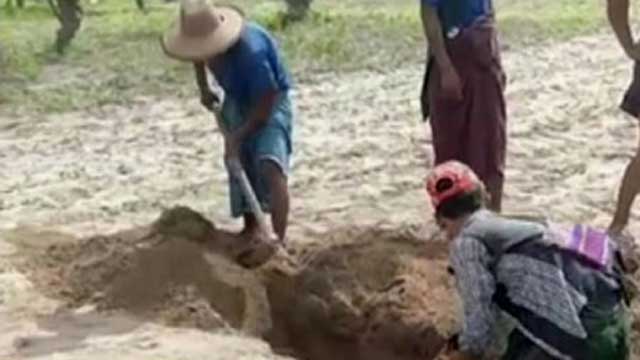Myanmar military carried out a series of mass killings of civilians in July this year, resulting in deaths of at least 40 men, according to a BBC investigation.
Eyewitnesses and survivors said that soldiers, some as young as 17, rounded up villagers before separating the men and killing them, revealed the investigation published today.
Video footage and images of the incidents appear to show that most of those killed were tortured first and buried in shallow graves, it said.
The killings took place in July, in four separate incidents in Kani township -- an opposition stronghold in Sagaing district in central Myanmar, the probe found.
The military has faced resistance from civilians since it seized control of the country in a February coup, deposing a democratically-elected government led by Aung San Suu Kyi.
The BBC spoke to 11 witnesses in Kani and compared their accounts with mobile phone footage and photographs collected by Myanmar Witness, a UK-based NGO that investigates human rights abuses in the country.
According to the investigation, the killings appeared to be a collective punishment for attacks on the military by civilian militia groups in the area, who are demanding that democracy is restored.
From the visual evidence and testimony gathered by the BBC, it is clear that men were specifically targeted, fitting with a pattern observed across Myanmar in recent months of male villagers facing collective punishment for clashes between the People's Defence Forces and the military.
BBC alleged that foreign journalists have been barred from reporting in Myanmar since the coup, and most non-state media outlets have been shut down, making on-the-ground reporting all but impossible.
The BBC put the allegations raised in this story to Myanmar's Deputy Minister for Information and military spokesperson, General Zaw Min Tun. He did not deny soldiers had carried out the mass killings.
"It can happen," he said. "When they treat us as enemies, we have the right to defend ourselves."





